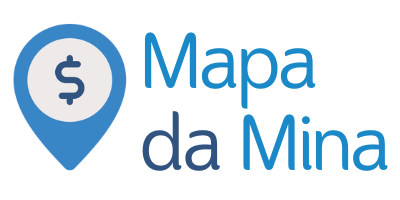The landscape of careers in office administration is rapidly evolving, offering a variety of roles with flexible schedules to suit different experience levels. This article serves as a comprehensive guide, detailing 50 such positions.
It aims to provide insights into this field's roles, salaries, and application processes. Whether starting or seeking advancement, this piece is your essential roadmap to navigating office administration careers.
Overview of Office Admin Careers
The field of office administration encompasses a wide range of roles, each crucial for smooth business operations. From entry-level positions to senior management, these roles vary in responsibility and expertise.
Key skills often include organization, communication, and basic technical proficiency. The diversity in this field allows for career growth and specialization.
With the evolving business landscape, administrative roles continue to adapt, integrating more digital tools and remote work opportunities. This sector is ideal for those seeking a stable yet dynamic career path.
Flexible Schedules in Admin Roles
Flexibility in work schedules is increasingly vital in today's job market, especially in administrative careers. These roles often allow varied hours, part-time opportunities, and remote work arrangements.
Such flexibility can improve work-life balance, increase job satisfaction, and increase productivity. It's particularly beneficial for those juggling personal commitments or pursuing further education.
Employers also benefit from this flexibility, attracting a wider talent pool and retaining employees longer. In essence, flexible schedules in office administration are a win-win for both employees and employers.
50 Flexible Office Administration Careers Across Experience Levels
This article delves into 50 specific office administration careers, each offering flexible work arrangements tailored to different expertise levels. It highlights the role responsibilities, necessary qualifications, and earning prospects.
- Administrative Assistant: In this role, you manage daily office tasks, assist executives, and handle correspondence. Basic computer skills and organizational abilities are essential, with experience requirements varying by employer. Potential earnings range from $30,000 to $45,000 annually.
- Receptionist: As a receptionist, your primary responsibilities include greeting visitors, managing phone lines, and scheduling appointments. This role often requires strong communication skills and a friendly demeanor, with entry-level positions available. Earnings typically fall between $25,000 and $35,000 per year.
- Office Manager: Office managers oversee administrative staff, coordinate office operations, and ensure efficient workflow. Strong leadership and organizational skills and experience in office administration are key. Annual salaries usually range from $35,000 to $60,000.
- Executive Assistant: In this position, you support high-level executives, managing their schedules and assisting with various projects. It demands advanced organizational skills and confidentiality handling. Typically, you can earn between $40,000 and $65,000 a year.
- Data Entry Clerk: This role involves entering data, maintaining databases, and ensuring record accuracy. Key skills include basic typing and attention to detail. Salaries usually hover around $25,000 to $40,000 annually.
- Human Resources Assistant: You'll support HR processes, manage employee records, and assist in recruitment activities. Effective communication skills and foundational HR knowledge are crucial. Expect to earn about $30,000 to $45,000 per year.
- Accounting Clerk: Your responsibilities include handling basic accounting tasks, processing invoices, and managing budgets. Familiarity with accounting principles and software is required. The pay for this role often ranges from $35,000 to $50,000 annually.
- Legal Secretary: Assists lawyers by organizing documents, scheduling meetings, and conducting legal research. Strong organizational skills and familiarity with legal terminology are needed. Annual earnings are typically in the range of $35,000 to $55,000.
- Medical Office Assistant: Works in healthcare settings, managing patient records, scheduling appointments, and assisting with administrative tasks. Knowledge of medical terminology and patient care coordination is key. You can expect to earn between $28,000 and $42,000 a year.
- Office Coordinator: Coordinates office activities, manages supplies, and assists with event planning. Strong multitasking and communication skills are essential. Salary usually ranges from $30,000 to $45,000 annually.
- Billing Clerk: Handles billing processes, issues invoices, and tracks payments. Accuracy and basic financial knowledge are necessary. Salaries typically fall between $30,000 and $45,000 per year.
- Customer Service Representative: Manages customer inquiries, provides product information, and resolves issues. Excellent communication skills and a customer-oriented mindset are crucial. You can expect to earn about $25,000 to $40,000 annually.
- Project Coordinator: Assists in planning, coordinating tasks, and tracking progress. Organizational skills and basic project management knowledge are important. Salary often ranges from $40,000 to $60,000 a year.
- Inventory Clerk: Manages inventory records, tracks stock levels, and assists with ordering supplies. Attention to detail and basic data management skills are key. Annual earnings are usually around $25,000 to $40,000.
- Facilities Coordinator: Oversees building maintenance, coordinates with vendors, and manages facility-related projects. Problem-solving skills and the ability to manage multiple tasks are necessary. Typical salary ranges from $35,000 to $50,000 per year.
- Public Relations Assistant: Supports PR campaigns, manages media lists, and assists with event planning. Strong writing skills and an understanding of media relations are essential. Expect to earn between $30,000 and $45,000 annually.
- Purchasing Assistant: Assists in procurement processes, manages orders, and communicates with suppliers. Negotiation skills and a basic understanding of supply chain management are important. Salaries typically range from $35,000 to $50,000 per year.
- Training Coordinator: Organizes training sessions, manages educational materials, and coordinates logistics. Skills in organization and communication are key. You can earn about $35,000 to $50,000 a year.
- Marketing Assistant: Supports marketing campaigns, analyzes market trends, and assists with promotional activities. Creativity and basic marketing knowledge are necessary. Annual earnings often range from $30,000 to $45,000.
- Travel Coordinator: Manages travel arrangements, books accommodations, and plans itinerary. Strong organizational skills and attention to detail are crucial. Salary usually falls between $30,000 and $50,000 per year.
- Payroll Clerk: Processes payroll, handles employee queries, and maintains payroll records. Accuracy and basic knowledge of payroll systems are essential. Typical earnings are around $30,000 to $45,000 annually.
- Records Management Officer: Maintains and organizes records, ensures policy compliance, and manages document retrieval. Attention to detail and understanding of records management principles are key. Salaries often range from $35,000 to $50,000 a year.
- Conference Coordinator: Plans and organizes conferences, coordinates with speakers, and manages event logistics. Strong planning skills and the ability to multitask are necessary. Expect to earn about $35,000 to $50,000 annually.
- Event Planner: You'll plan and execute corporate events, manage budgets, and coordinate with vendors. Creativity and strong organizational skills are essential. Earnings range between $40,000 and $60,000 per year.
- Administrative Coordinator: This role involves coordinating administrative procedures, streamlining processes, and supporting management. Proficiency in multitasking and strong communication skills are key. Salaries typically fall around $35,000 to $55,000 annually.
- Quality Control Clerk: Oversees quality assurance processes, maintains compliance records, and assists in audits. Attention to detail and understanding of quality standards are important. Annual earnings usually range from $30,000 to $45,000.
- Document Control Specialist: Manages document flow, ensures proper filing, and maintains version control. Organizational skills and proficiency in document management systems are crucial. You can expect to earn about $35,000 to $50,000 a year.
- Procurement Officer: Handles purchasing activities, negotiates with suppliers, and manages contracts. Skills in negotiation and an understanding of procurement processes are necessary. Salary often ranges from $40,000 to $60,000 annually.
- Sales Support Administrator: Assists sales teams, manages customer databases, and processes orders. Strong communication skills and a customer-focused approach are key. Salaries typically range from $30,000 to $45,000 per year.
- IT Support Administrator: Provides technical support, manages IT equipment, and assists with system updates. Knowledge of information technology and problem-solving skills are essential. Expect to earn between $35,000 and $55,000 annually.
- Research Assistant: Supports research projects, and collects and analyzes data. Attention to detail and basic research skills are important. Annual earnings are usually around $30,000 to $45,000.
- Health and Safety Coordinator: Oversees workplace safety programs, conducts training, and ensures compliance with regulations. Knowledge of safety protocols and strong communication skills are necessary. Typical salary ranges from $35,000 to $55,000 per year.
- Communications Coordinator: Manages internal communications, produces content, and assists with media relations. Strong writing skills and an understanding of communication strategies are crucial. You can expect to earn about $35,000 to $50,000 a year.
- Logistics Coordinator: Coordinates shipping, manages logistics operations, and tracks deliveries. Organizational skills and knowledge of logistics processes are key. Salaries often range from $35,000 to $50,000 annually.
- Graphic Design Assistant: Assists in design projects, creates visuals, and supports marketing efforts. Creativity and proficiency in graphic design software are essential. Annual earnings typically fall between $30,000 and $45,000.
- Compliance Assistant: Supports compliance initiatives, maintains records, and assists in audits. Attention to detail and a basic understanding of regulatory requirements are necessary. Expect to earn about $35,000 to $50,000 per year.
- Client Services Coordinator: Manages client relations, coordinates services, and ensures customer satisfaction. Strong interpersonal skills and a focus on client needs are key. Salary usually ranges from $35,000 to $50,000 annually.
- Property Management Assistant: Assists in managing rental properties, coordinates maintenance, and communicates with tenants. Organizational skills and basic knowledge of property management are crucial. Salaries typically range from $30,000 to $45,000 per year.
- Administrative Support Specialist: Provides comprehensive administrative support, manages complex schedules, and assists with projects. Strong multitasking skills and proficiency in office software are essential. You can earn about $35,000 to $55,000 a year.
- Supply Chain Assistant: Supports supply chain operations, tracks inventory, and assists with procurement processes. Understanding of supply chain management and strong organizational skills are important. Annual earnings often range from $35,000 to $50,000.
- Digital Media Assistant: Assists with creating digital content, managing social media platforms, and supporting online marketing campaigns. Creativity and basic digital marketing skills are necessary. Expect to earn between $30,000 and $45,000 annually.
- Employee Relations Assistant: Supports employee relations initiatives and conflict resolution and helps enforce policy. Skills in communication and a basic understanding of HR practices are key. Salaries usually fall around $30,000 to $45,000 per year.
- Volunteer Coordinator: Manages volunteer programs, recruits volunteers, and coordinates activities. Strong interpersonal skills and organizational abilities are crucial. Typical earnings range from $30,000 to $45,000 annually.
- Financial Assistant: Assists in financial planning, processing transactions, and managing budgets. Understanding financial principles and attention to detail are essential. Salaries typically range between $35,000 and $50,000 per year.
- Office Technology Coordinator: Manages office technology resources, troubleshoots issues, and assists in technology upgrades. Knowledge of current technologies and problem-solving skills are key. You can earn about $40,000 to $60,000 annually.
- Risk Management Assistant: Supports risk assessments, manages insurance policies, and assists in compliance activities. Skills in analysis and basic knowledge of risk management are necessary. Annual earnings usually fall around $35,000 to $55,000.
- Administrative Analyst: Analyzes administrative processes, provides recommendations for improvements, and assists in implementation. Strong analytical skills and proficiency in data analysis tools are crucial. Salary often ranges from $40,000 to $65,000 per year.
- Office Supply Coordinator: Oversees supply inventory, manages orders, and negotiates with suppliers. Organizational skills and an understanding of inventory management are important. Salaries typically range from $30,000 to $45,000 annually.
- Sustainability Coordinator: Manages sustainability initiatives, promotes eco-friendly practices, and coordinates environmental programs. Knowledge of environmental policies and strong communication skills are key. Expect to earn about $35,000 to $50,000 a year.
- Resource Allocation Specialist: Allocates resources efficiently, manages scheduling, and assists in project management. Skills in planning and resource management are essential. Annual earnings often range from $35,000 to $55,000.
Simple Steps for Job Application in Office Administration
Navigating the job application process can be streamlined with a clear approach. This guide breaks down the essential steps, making it easier for you to apply for roles in office administration.
Identifying Suitable Jobs
Start by researching available positions that match your skills and interests. Use job search websites and industry-specific platforms to find relevant opportunities.
Evaluate job descriptions carefully to ensure they align with your experience and career goals. Making a list of potential jobs helps in organizing your application process.
Preparing a Resume and Cover Letter
Tailor your resume to highlight relevant skills and experiences for each job. Craft a concise cover letter that complements your resume, focusing on how you can contribute to the potential employer.
Ensure both documents are free of errors and reflect a professional tone. Keep your resume updated and customize your cover letter for each application.
Applying Online or Through Networks
Utilize online job portals and professional networks like LinkedIn to submit your applications. Ensure your LinkedIn profile is up-to-date and reflects your resume.
Utilize your network for referrals and insights about the companies. Remember, a well-maintained online presence can be a significant asset in your job search.
Preparing for Interviews
Research the company and the specific role before the interview. Practice common interview questions and prepare to discuss your experience and skills confidently.
Dress appropriately and plan to arrive early. Remember, a good interview is as much about your questions and engagement as your answers.
Following Up Post-Interview
Send a thank-you email within 24 hours of your interview, expressing gratitude and reiterating your interest in the role. A polite follow-up email is appropriate if you have been waiting to hear back in a week.
Use this opportunity to restate your enthusiasm for the position. Remember, timely and considerate follow-ups can demonstrate your professionalism and eagerness.
Understanding Work-Life Balance in Office Administration
Achieving work-life balance is crucial in maintaining job satisfaction and personal well-being. In office administration, this balance is often attainable through flexible work arrangements.
Exploring Flexible Work Schedules
Many office administration roles offer flexible hours or remote work options. This flexibility allows you to manage personal commitments alongside professional responsibilities.
Such arrangements can lead to increased job satisfaction and reduced stress. Remember, when exploring jobs, inquire about flexible work options.
Benefits of Work-Life Balance
A healthy balance between work and personal life can improve mental health and productivity. In office administration, this balance allows for better focus and efficiency during work hours.
It also fosters a positive work environment and can contribute to long-term career satisfaction. Prioritizing work-life balance is beneficial for both employees and employers.
Career Growth in Office Administration
Intro: Office administration offers diverse opportunities for career advancement. Understanding these pathways can help you navigate your professional growth effectively.
Opportunities for Growth and Promotion
Advancement in office administration can come through promotions, assuming more responsibilities, or specializing in certain areas. Seek opportunities to take on new challenges and showcase your skills.
Building a solid network and seeking mentorship can also aid your career progression. Remember, being proactive about your career growth is critical.
Importance of Continuous Learning and Training
Staying updated with the latest industry trends and enhancing your skillset is vital. Consider additional certifications or training in areas like project management or software applications.
Engaging in continuous learning demonstrates your commitment to your career and can open up new opportunities for advancement. Employers value employees who are committed to their professional development.
The Bottom Line on Office Administration Careers
The diverse range of careers in office administration offers flexibility and opportunities for individuals at all experience levels. From entry-level roles to advanced positions, there's a fit for everyone looking to enter or progress in this field.
The key to success lies in identifying roles that match your skills and aspirations and continuously developing your abilities. This sector's vast array of job options provides a unique blend of stability, growth, and work-life balance, making it an attractive choice for many professionals.






